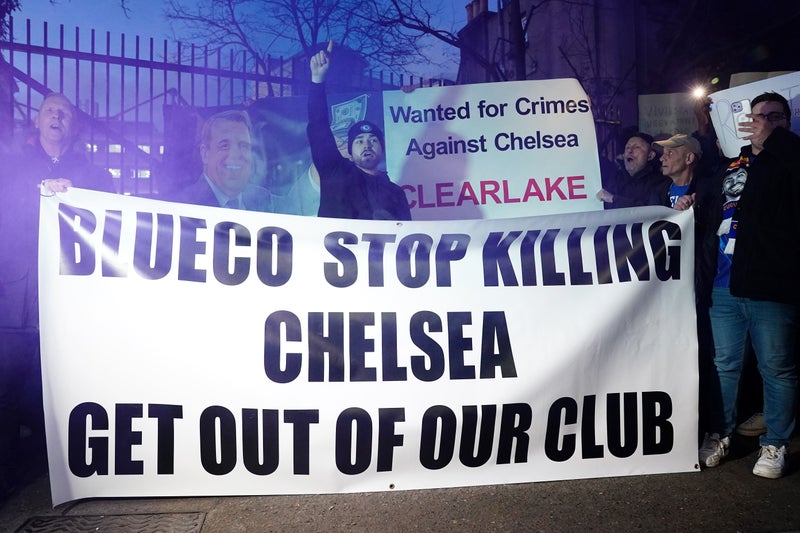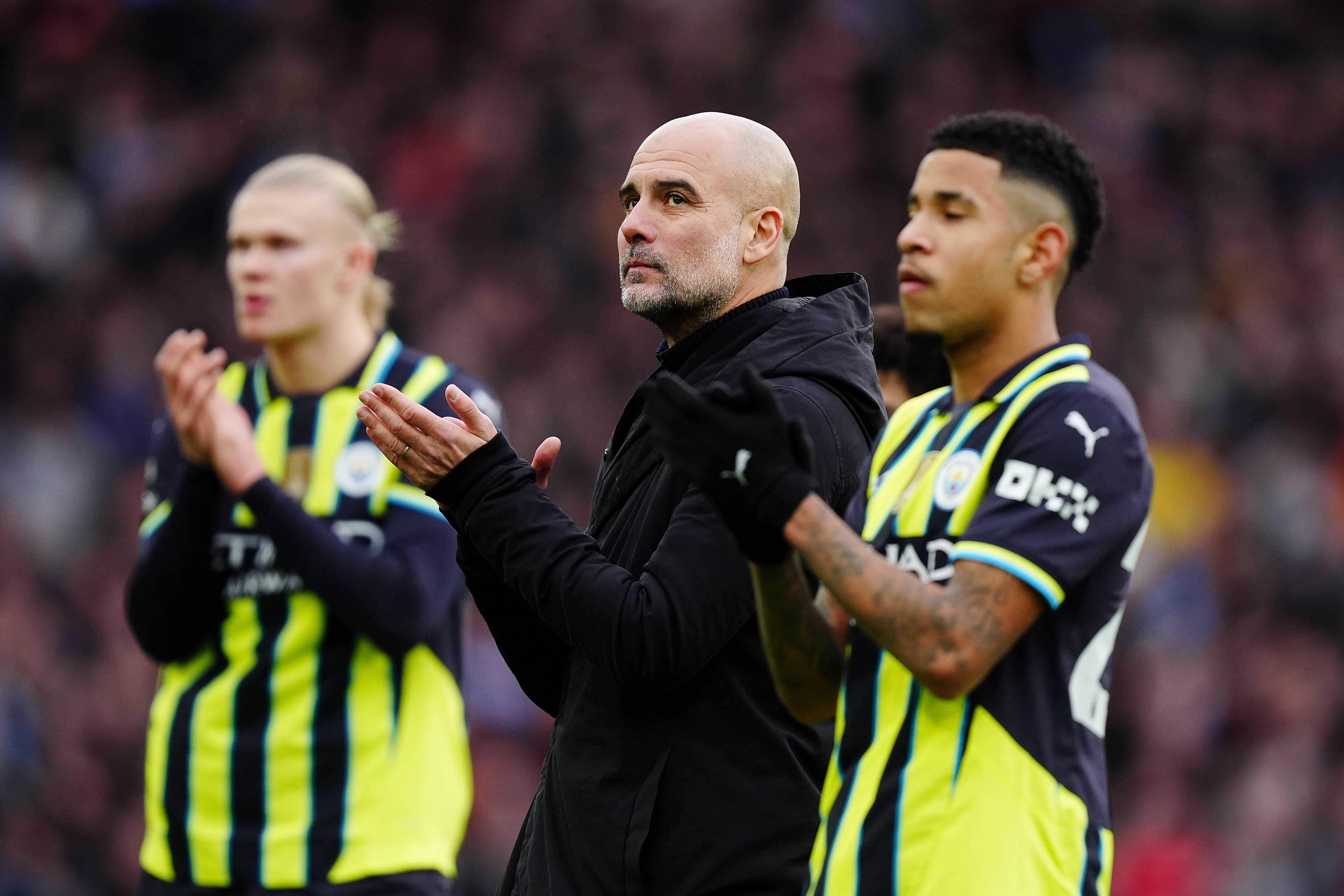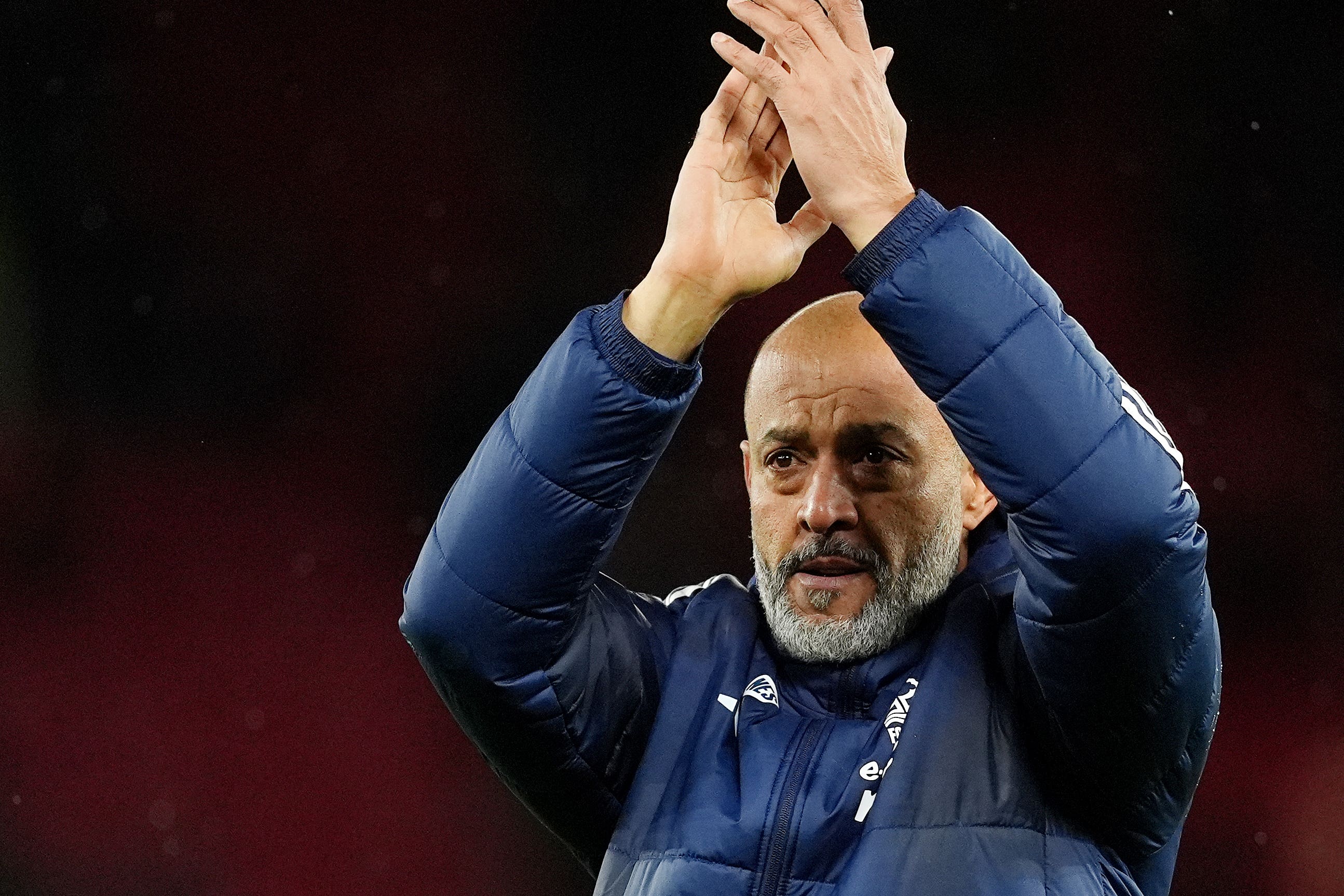Chelsea 4-0 Southampton: The Blues cruised to victory over the hapless Saints but there are wider issues being played out at Stamford Bridge. Enzo Maresca, for now, has his Chelsea back at least. Whether it will quieten down supporter protest in the medium term remains to be seen. This is about more than whether Chelsea can be a Champions League club again, even as this 4-0 win over Southampton temporarily put them back into the top four.
![[The match was preceded by protests from Chelsea fans against the club’s owners]](https://static.independent.co.uk/2025/02/25/22/38/SEI241432890.jpeg)
That in turn undid the effects of the Aston Villa defeat at the weekend, in the way that seems to keep happening in this season’s wide-ranging race for the top four. No one can seize the moment, so Chelsea aren’t alone there. The greater question is whether it will undo bigger concerns about Maresca’s team over the past few weeks, not to mention more profound questions over identity.
![[Protests about the Chelsea owners are because of a number of issues]](https://static.independent.co.uk/2025/02/25/22/46/SEI241431714.jpeg)
That’s the thing about a win over Southampton right now. A fixture against them is almost one of those thankless games in that victory is expected, but dropped points would lead to utter excoriation. Almost. It wasn’t quite that mundane for Chelsea because they so badly needed a win, with this only their third in 11 Premier League games.
![[The owners feel that Chelsea’s expensive squad suits their model of recruitment]](https://static.independent.co.uk/2025/02/25/20/53/SEI241444324.jpeg)
There was a bit of vim to their attack again, too, but how couldn’t there be against Ivan Juric’s sorry side? We are into the territory of talking about one of the worst Premier League sides ever, since the Saints still need three points to beat Derby County’s 2007-08 record of 11. That’s where they’re at.
![[Cult hero Marc Cucurella rounded off the scoring for Chelsea]](https://static.independent.co.uk/2025/02/25/22/732e099ce48770f92ea9d1b208559872Y29udGVudHNlYXJjaGFwaSwxNzQwNjA4MDEw-2.79186322.jpg)
Then again, Chelsea are at a strange moment in their own history, given how this game was preceded by supporter protest against the Clearlake owners. It’s been a theme. It is certainly worth noting that this is only the latest supporter protest in the Premier League, following on from neighbours Tottenham Hotspur two weeks ago.
And while such demonstrations are always linked to results in some way, it would be wrong to not acknowledge there is obviously something much deeper going on. You only have to listen to the most common complaint among Chelsea fans, that they feel they have lost that “connection” to their club. Responses to the protests on social media saw some rival fans outright mock this, pointing to how the same fans were singing “we’ve got our Chelsea back” just a few months ago, and wondering how many would welcome the return of the sanctioned Roman Abramovich.
That is partly understandable given the nature of club rivalry – not to mention the actual sentiments of some Chelsea fans – but it’s also one of the problems with English football. There is nothing like the kind of cross-club solidarity seen in Germany or Sweden. Rivalry even seems to cut across genuine collective supporter issues, when it shouldn’t.
That the Chelsea protest happened in the same week that Manchester United announced more lay-offs only illustrates the point. This is all linked. Chelsea fans complaining about connection may be specific to circumstances, but it is also in-keeping with a general feeling right across elite football. How couldn’t it be when so many clubs are bought and sold with minimal input from the fans; when so many unpopular decisions are made that they have no control over; when ticket prices go up and season-ticket holders worry whether they are being priced out of the game so expensive one-off passes can be sold to a new strand of consumer fan?.
These are all concerns from the neoliberal model the game has chosen, that the Premier League has taken to extremes, and football is beginning to reach another reductio ad absurdum. The centre can no longer quite hold. Cracks are appearing. As a private equity group who have investment from Saudi Arabia’s Public Investment Fund, albeit not in their stake in the club, Chelsea’s owners represent the extreme of this. Clearlake were even the first of that type of ownership to buy a major European football name. And the club’s name, or really the sense of identity, is really what this is ultimately about.
Ownerships like private equity groups don’t ultimately see football clubs as football clubs, in the truest sense. Sure, the aims might obviously align in how they want the team to win, but they’re ultimately looking at a vehicle that offers a return on investment – like any part of their portfolio.
It should never be forgotten that this isn’t what football clubs are actually for. They don’t exist to make a profit. They exist to play football as representatives of their area, and only need to be self-sufficient for that. Modern ownerships can allow that, of course, but only as part of something else. And ambitions will ultimately diverge. A tension will always arrive. You only have to look at the number of apologies "good" owners like Liverpool's have had to make over the last decade.
As to what this Chelsea actually are right now, it depends on your perspective. The current owners see a squad designed to a specific model of recruitment, that they believe can eventually hit 100 points in an individual season with the right development. They would acknowledge flaws, sure, but feel results and performances this season broadly indicate progress.































